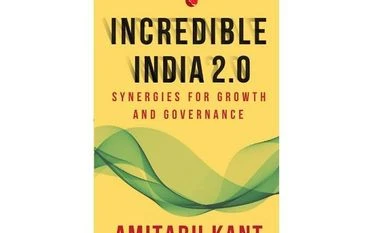A story used to be told about the question he asked a representative of McKinsey who had just finished making a presentation on how to make the Indian economy gallop.
Vajpayee heard him out, thought for long time, and asked the multi-crore question: par yeh sab hoga kaise (how will all this happen)?
More From This Section
The brevity and clarity of Mr Kant is, therefore, welcome. But the Vajpayee question remains: yeh sab hoga kaise? Mr Kant is bubbling with ideas. So, it is a good thing he has chosen a blog/editorial/column format to express himself. There are 37 chapters on different topics in the book. Each chapter is, therefore, of about six pages. That makes it easy to read.
But this approach doesn’t help with prioritisation. Which six of the 36 focus areas — leaving out the introduction — must we start reforming first?
I have picked three from his 36 so that he doesn’t appear like that Leacockian hero who “rushed madly out of the room, rushed madly on to his horse, and rushed madly off in all directions”.
One at a time, please
These three priorities are administration, judiciary and nutrition. Even within these, I would say nutrition must be the absolute first priority by a mile. A billion people with an average IQ of 80 are borderline idiots. They won’t achieve anything.
Mr Kant has a lot to say about these three areas, in fact too much. It would be better to pick one thing and focus on that for five years before bringing up the rest. It’s called the one-run-at-a-time approach in cricket and is usually highly successful in run chases.
The chapter on nutrition, for example, sets out far too many objectives to be pursued simultaneously. To be sure, each objective is important. But again, it is also important to prioritise, because otherwise you run into the old problem of inadequate resources for each category.
Nutrition is not rocket science. It is simply a matter of giving children between the age of one and five a glass of milk and a banana or an egg every day, instead of cooked food that they don’t eat anyway.
The funding isn’t a problem either if you make this a part of corporate social responsibility and that 2 per cent thing. The corporations would also cooperate happily with such a simple requirement.
The other agency that can be asked to do this are the temples, mosques, churches and gurudwaras because they already have the supply chains in place.
Administration and justice
The chapters on governance and administration, seven in all, in a section called “Governance”, make for heartening reading. Mr Kant provides a long and very impressive list of things that have been done, changes that have been made and the efficiencies that have been achieved.
The theme that runs through these chapters is of the use of technology, the innovations such as lateral entry into government and a matching amount of self-congratulation for the NITI Aayog.
But one important element is missing: How does the government propose to deal with the rule-making powers of the bureaucracy, its generally low competence, the protection given to it and the disproportionate rewards bestowed on it at the cost of the rest of us?
As for the judiciary, Mr Kant has again devoted an entire section of four chapters to it. This is a complicated subject involving a lot of deeply philosophical questions. Fortunately, Mr Kant has avoided those and focused on some practical aspects.
The most important of these is the chapter on the economic impact of judgments. He cites the conflict between ecology and growth and says the courts sometimes ignore their own wisdom, namely, the need for balance. He says this problem should be addressed.
True. But to quote Vajpayee again, yeh sab kaise hoga?
To read the full story, Subscribe Now at just Rs 249 a month
Already a subscriber? Log in
Subscribe To BS Premium
₹249
Renews automatically
₹1699₹1999
Opt for auto renewal and save Rs. 300 Renews automatically
₹1999
What you get on BS Premium?
-
Unlock 30+ premium stories daily hand-picked by our editors, across devices on browser and app.
-
Pick your 5 favourite companies, get a daily email with all news updates on them.
Full access to our intuitive epaper - clip, save, share articles from any device; newspaper archives from 2006.
Preferential invites to Business Standard events.
Curated newsletters on markets, personal finance, policy & politics, start-ups, technology, and more.
Need More Information - write to us at assist@bsmail.in
)